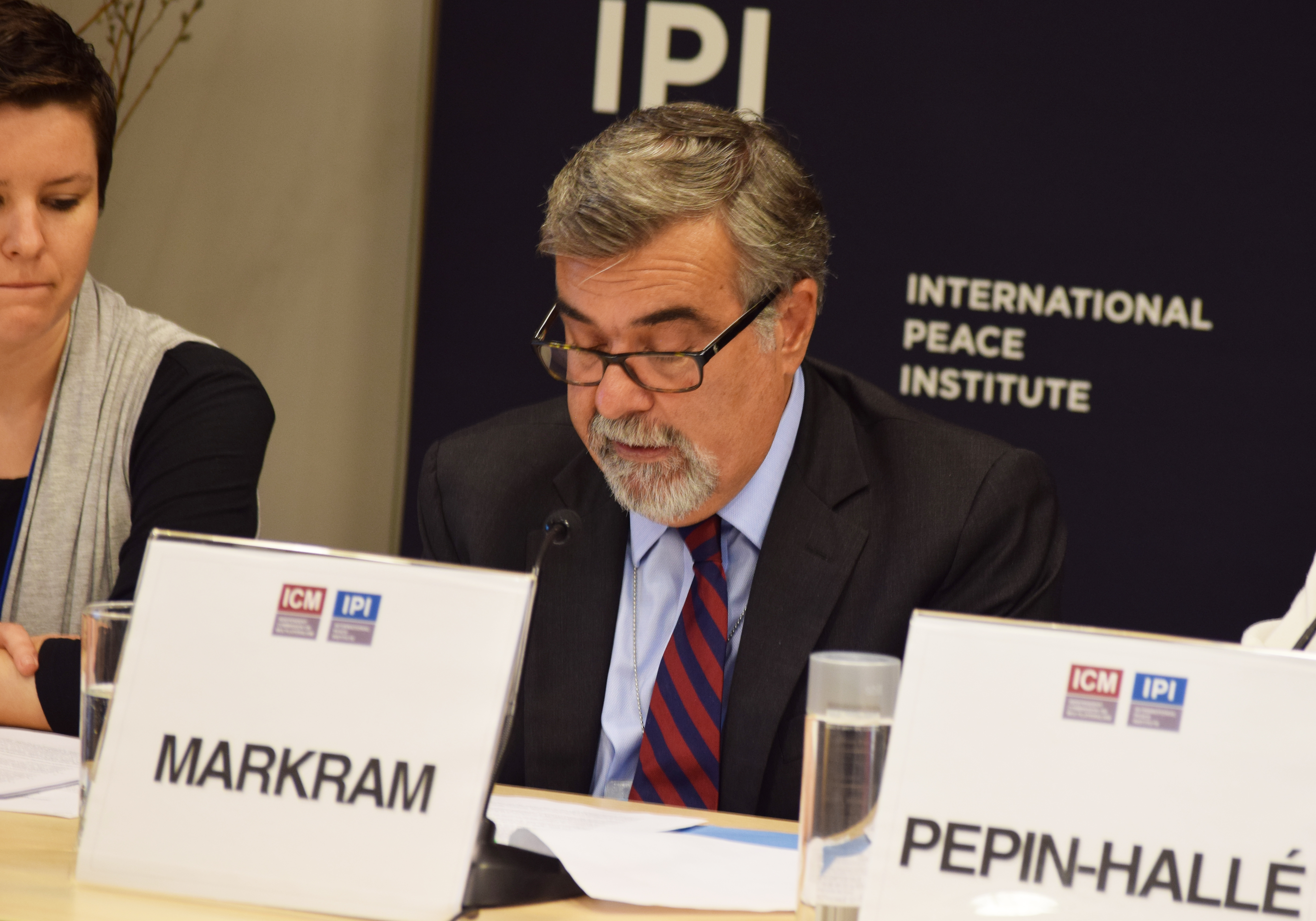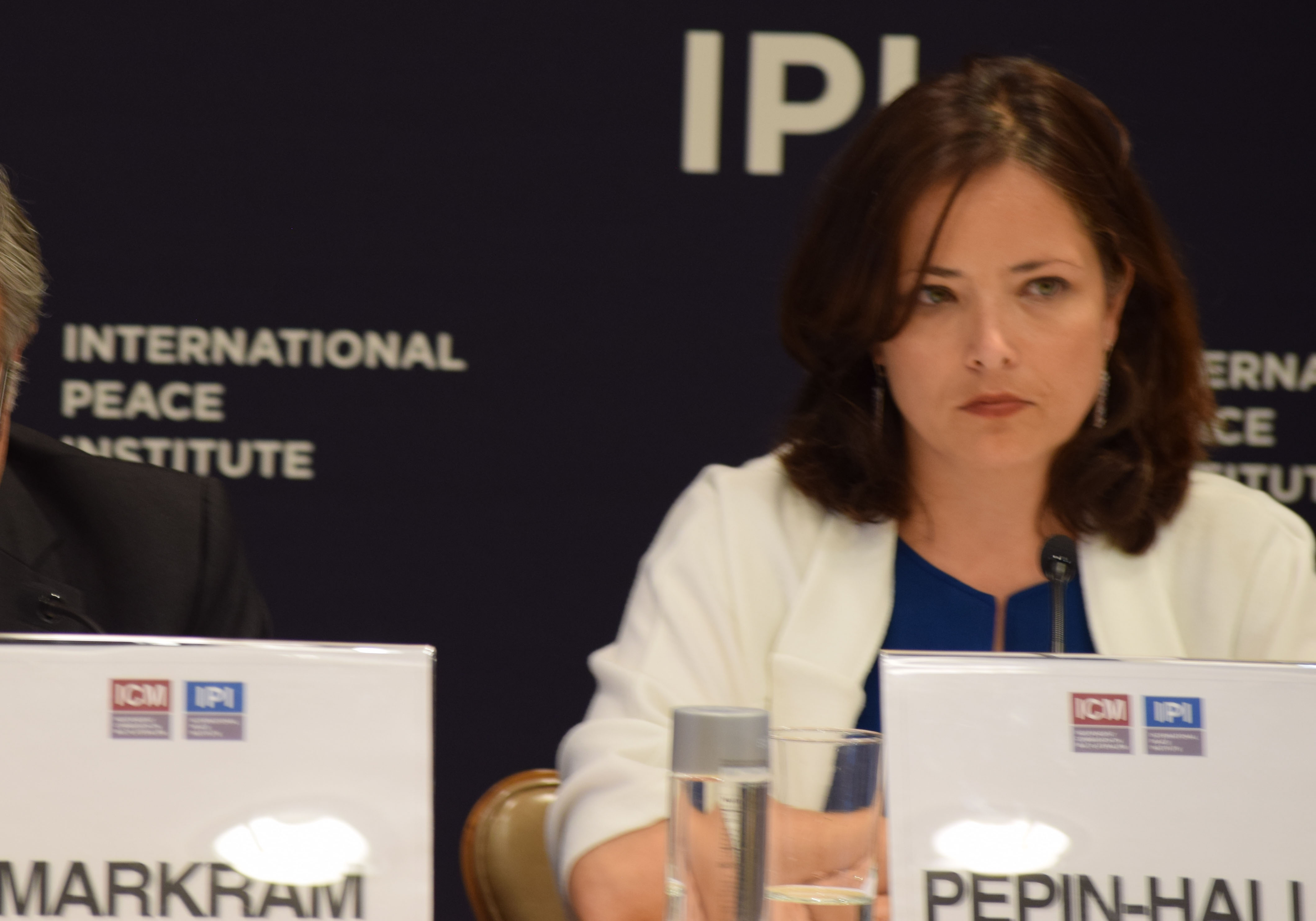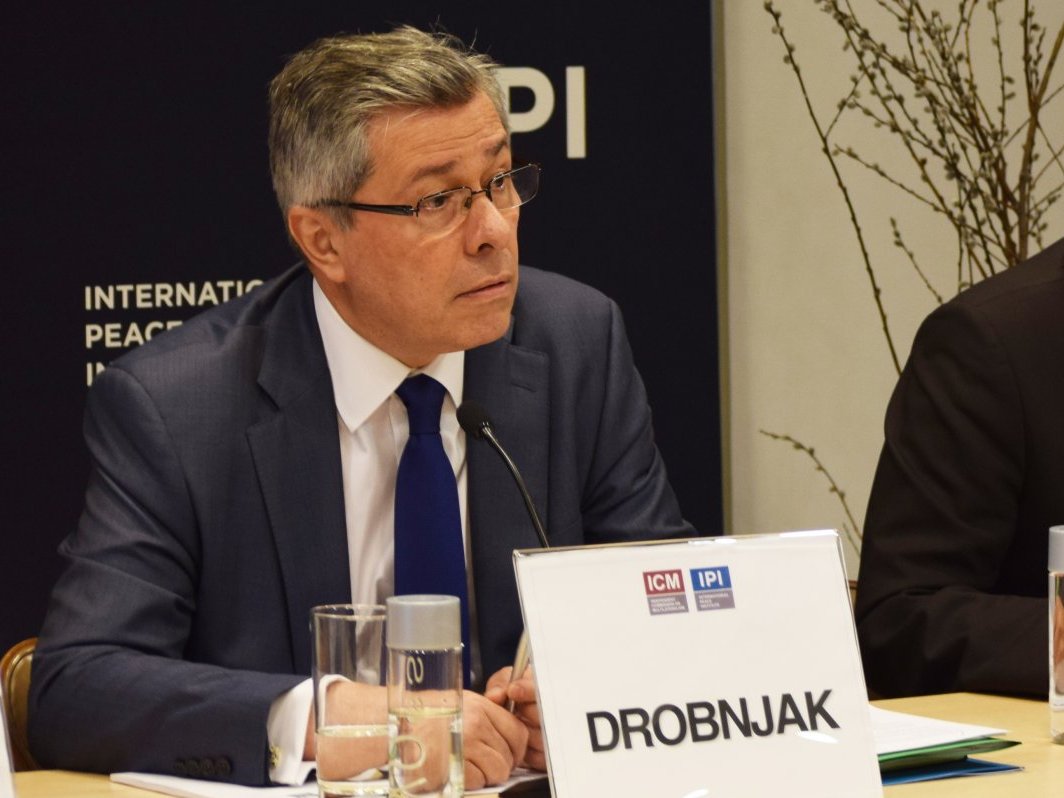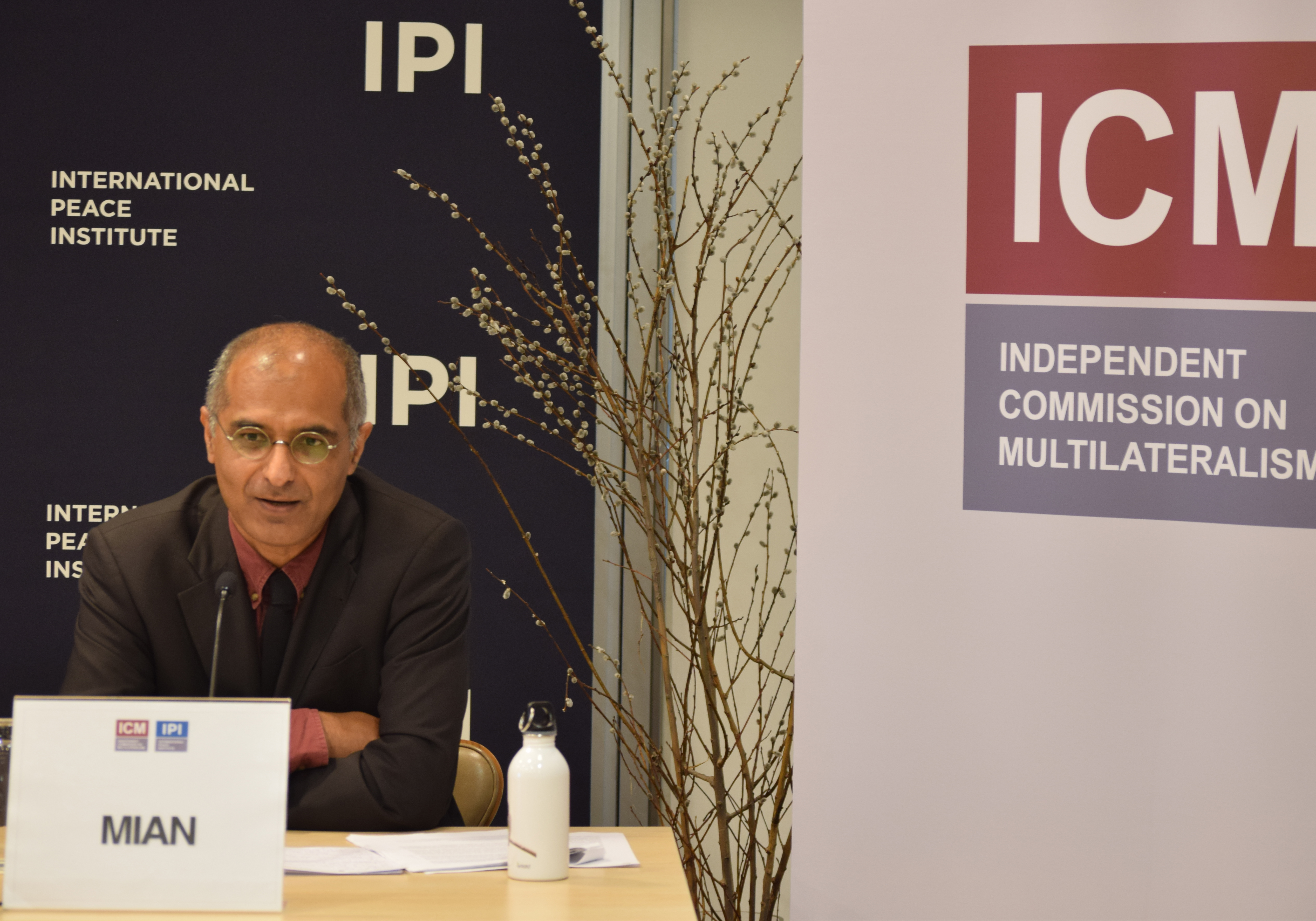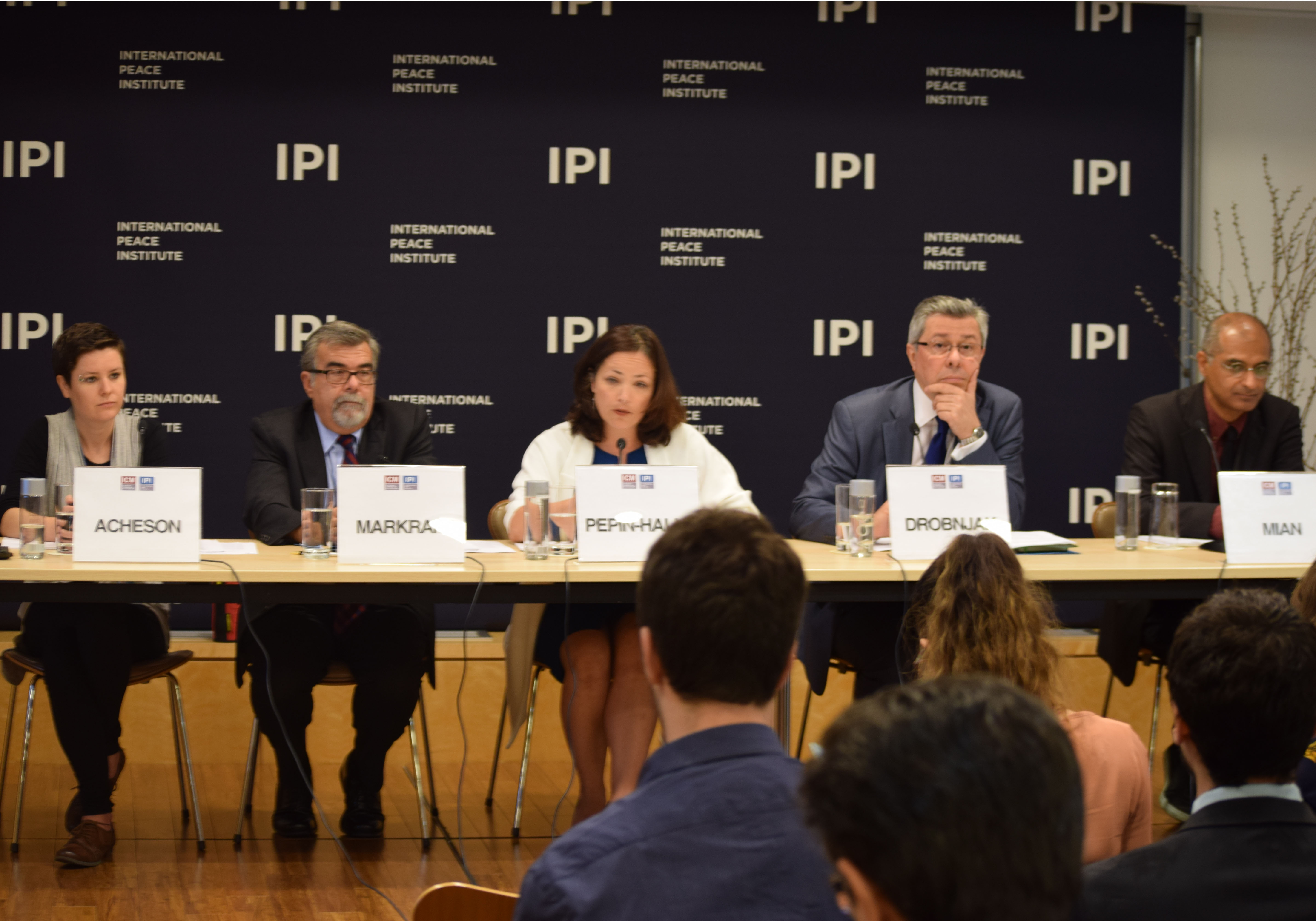The ICM hosted a public consultation on June 8th on its discussion paper “Weapons of Mass Destruction, Non-Proliferation, and Disarmament.”
Watch the webcast:
The threat of weapons of mass destruction (WMD) may seem antiquated and unlikely to materialize, but the mere existence of WMD remains one of the paramount risks to global peace and stability. While important baseline multilateral tools to counter WMD threats and prevent proliferation exist, few of these tools address nuclear weapons. Additionally, the strict “ruling by consensus” of the Conference on Disarmament and the Disarmament Commission have resulted in gridlock. The constant erosion of the processes that support the normative framework of the United Nations disarmament and non-proliferation machinery are in need of serious revitalization.
While there have been policymaking achievements over the years, including the Non-Proliferation Treaty, the Chemical Weapons Convention and the Biological Weapons Convention, all of which are landmark agreements, implementation remains challenged at every corner. Global initiatives have taken place seeking to force movement within the UN or circumvent the UN altogether. Nevertheless, these initiatives have been met with resistance, either from nuclear weapon states and their allies or from other regional groupings, and thus have yielded few concrete results. The UN and its member states need to find ways to more formerly include all interested parties, civil society, and academia in these discussions which could be part of the motor for change. Greater efforts towards transparency and knowledge to better understand WMD threat in the 21st Century could also help build confidence amongst the decision-makers. This ICM discussion paper makes a series of recommendations addressing, among other issues, the disarmament machinery, the roles and responsibilities of the United Nations, member states, and civil society at the UN.
This public consultation focused on the insights and recommendations of the discussion paper. We received feedback from members of civil society organizations, academia, member states, and the private sector, and consequently considered the feedback while making adjustments to the paper.
Discussants:
H.E. Mr. Vladimir Drobnjak, Permament Mission of the Republic of Croatia to the UN
Ms. Ray Acheson, Director, Reaching Critical Will
Mr. Thomas Markram, Director and Deputy to the High Representative, Office for Disarmament Affairs, UN
Prof. Zia Mian, Director, Program on Science and Global Security, Princeton University
Moderator:
Ms. Véronique Pepin-Hallé, Senior Adviser, Independent Commission on Multilateralism


